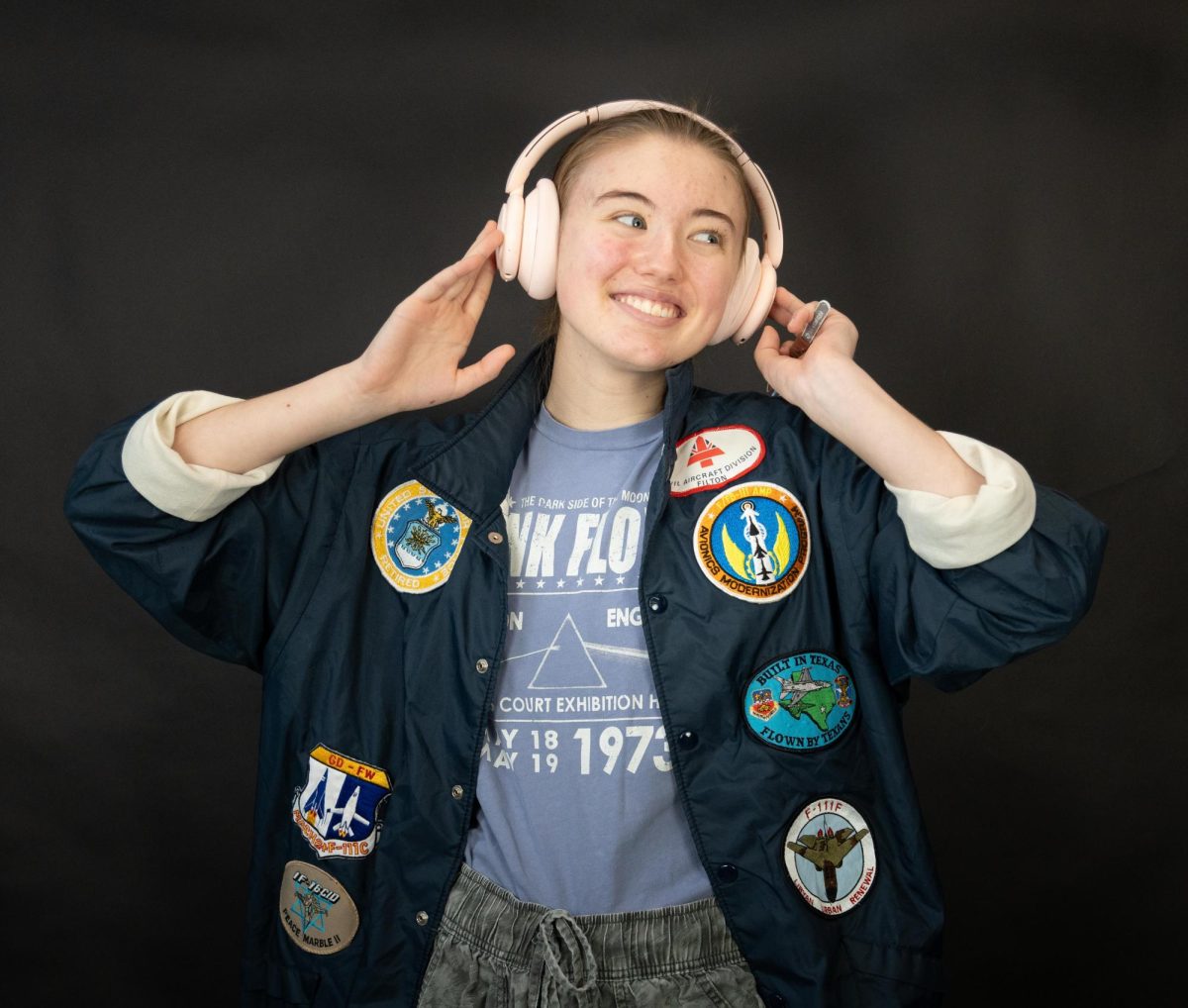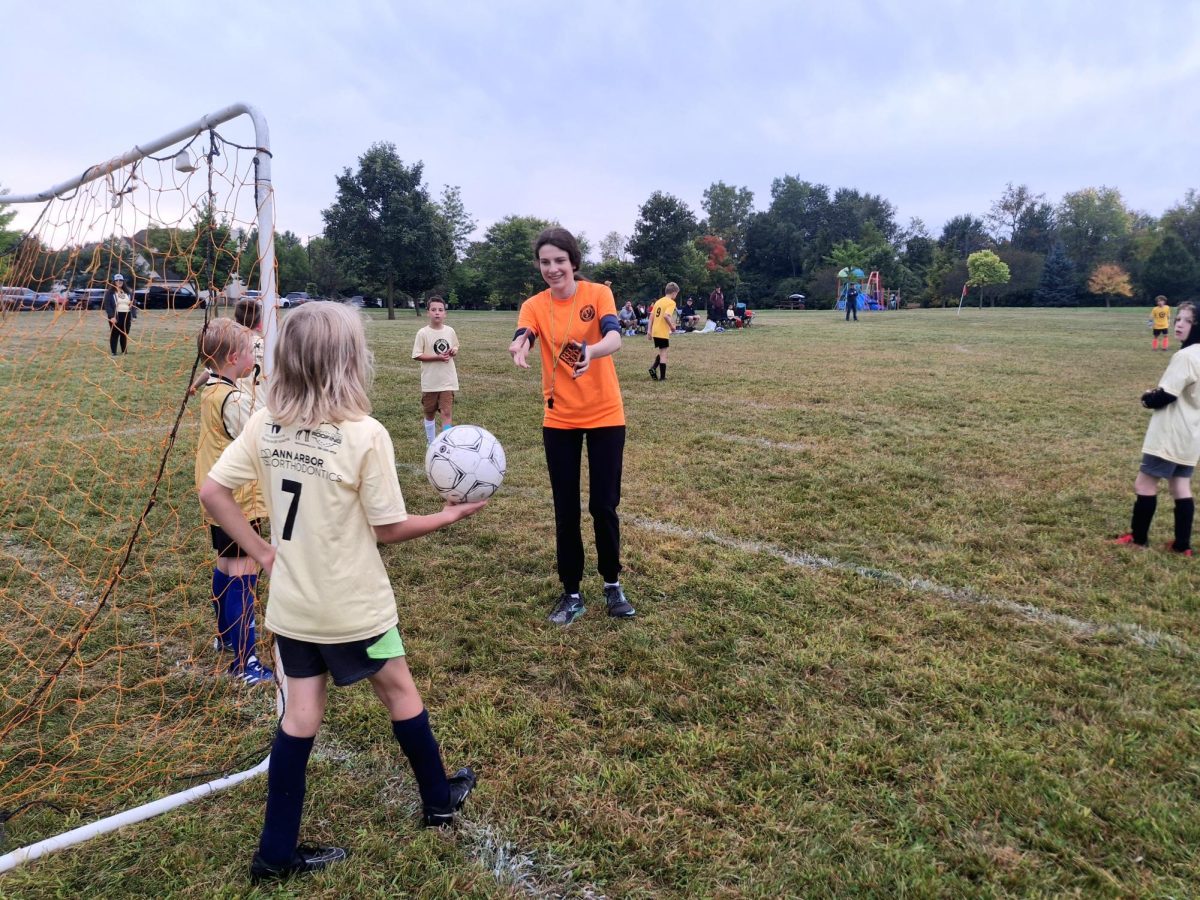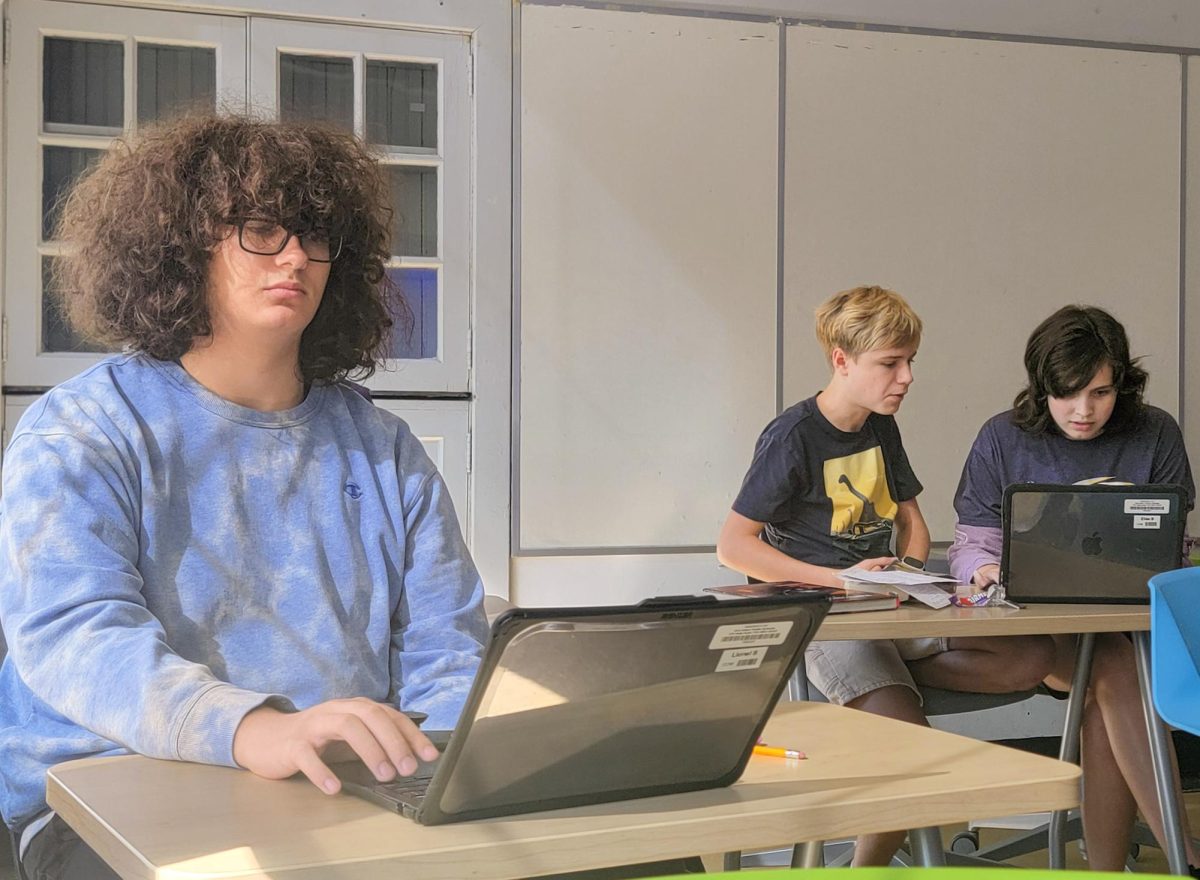As the night dragged on at the Malletts Creek Branch of the Ann Arbor District Library, minutes turned into hours, the overhead lights slowly dimmed and Pioneer senior Haneul Park’s motivation slowly dwindled. As she reached a plateau in productivity, she turned to her studying superpower: music.
Park has a strong relationship with music, which has guided her through many different moments throughout her life. Studying and school stress are no exception. Listening to music has become a strict routine in Park’s life.
“Music helps to give me something neutral to focus on so I can simultaneously concentrate on my work,” Park said. “Usually my music is not very energetic, it’ll either be calm piano music or calm pop music.”
While Park prefers more calming and relaxing music, CHS senior Kaylie Peters prefers energetic and upbeat music to get herself in the studying zone. Fueled by Broadway show tunes such as “Hadestown,” “Wicked” and “Hamilton,” Peters uses her favorite music to enjoy her studying.
“Music definitely helps me focus on the topic a lot more and makes me feel more excited on the actual topic,” Peters said. “Then, once I’m actually inside that study zone, it doesn’t really take long for me to be able to get all the topics and get to all the problems.”
Many people have different experiences when it comes to listening to music, but Peters uses music to enjoy the commonly mundane act of studying.
“The music kind of helps to create an experience for me,” Peters said. “It gives me something to look forward to. It gives my brain a boost of happiness, and it just gets me motivated to actually do something.”
However, Nyx Frisinger prefers her normal music to give some background noise for her ADHD. “I listen to my regular music, like pop and rock, the stuff I usually listen to,” Frisinger said. “I have ADHD so it helps focus my brain and just hearing background music that I hear on a daily basis helps.”
In addition, CHS counselor, Missy Hersowitz, notes students have different reasons for listening to music. “I think that some people really enjoy listening to music since they get distracted by background noise or silence or it just helps their brain,” Herskowitz said. “My partner grew up in a home where there was always background noise so silence is immensely distracting.”
When Hersowitz taught Spanish, she found that songs were effective ways to help students remember different things and to boost proficiency by teaching them phrases in a natural setting where they would learn good pronunciation and intonation.
CHS sophomore Julianne Heller finds that listening to music is helpful while studying because she can use the music as a motivation to get her studying done. If a song is three minutes long she can then try to get a specific task done in two or three songs.
She also finds that music fills in the silence in the background, which can also be used as motivation. “I feel music really gets my energy going,” Heller said. “If I have nothing in the background, I feel nothing. But if I have a pop and energy sound in the background. I’m like, ‘Oh, I got this.’”
Heller suggests that people should try to listen to something while studying, even if it’s not music because it can really improve their mood and motivate them to do their work. She mentions that having a TV show playing in the background has worked for her to stay focused and compelled to do her work.
Park, Peters, Frisinger and Hersowtiz all think listening to some kind of music while studying whether it’s pop music, relaxing study music or musical theater songs, can be beneficial to learning and studying.











